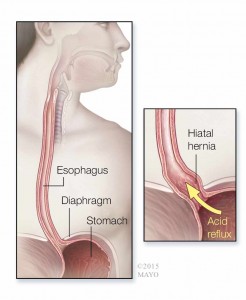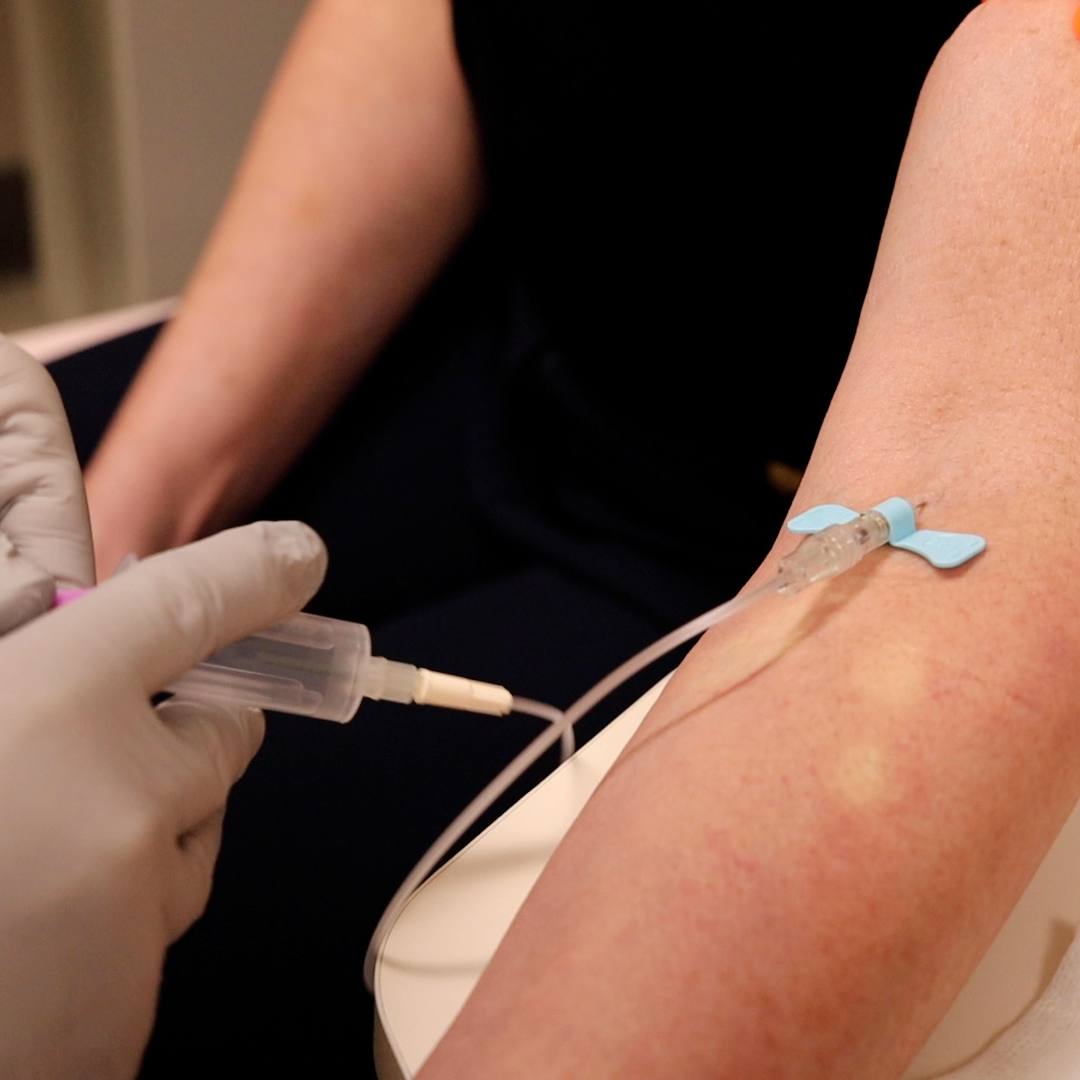-
Health & Wellness
Mayo Clinic Q and A: Acid reflux often associated with hiatal hernia
DEAR MAYO CLINIC: Six years ago I was diagnosed with acid reflux and a hiatal hernia. I have had an endoscopy as well as other tests, but doctors say there is nothing I  can do other than take medication. (I am currently on doxepin.) But I am still having sharp pains that wake me up around 4 a.m. Do you have any suggestions?
can do other than take medication. (I am currently on doxepin.) But I am still having sharp pains that wake me up around 4 a.m. Do you have any suggestions?
ANSWER: Your situation is very common in people who have a hiatal hernia. There are a number of lifestyle changes that may help reduce your nighttime symptoms. Taking an acid-reducing medication may make a difference, too. In rare cases, surgery may be necessary if nothing else works to relieve symptoms.
A hiatal hernia happens when part of your stomach pushes up through your diaphragm. Your diaphragm has a small opening, called a hiatus, which your esophagus passes through on its way to your stomach. The stomach can push up through this opening and cause a hiatal hernia. Acid reflux — a condition in which stomach acid flows up into the esophagus — is often associated with a hiatal hernia.
Having symptoms of acid reflux at night is common. When you lie down, it is easier for the acid to move into your esophagus. But just because you have a hiatal hernia and acid reflux does not necessarily mean that they are the source of your symptoms. With that in mind, it would be a good idea for you to talk with your doctor about your nighttime pain, especially if you are having any other symptoms, such as shortness of breath or jaw or arm pain. An evaluation can rule out the possibility of another medical condition as the underlying cause.
If your doctor determines that the pain is due to acid reflux, there are several self-care options you can try at home. For example, raise the head of your bed. Place blocks under the feet of your bed so the head is raised about six to nine inches. Or, put a wedge between your mattress and box spring to raise your body from the waist up. Using extra pillows alone to raise only your head won’t be enough to keep symptoms at bay.
Be careful with what and when you eat. Do not eat foods in the evening that tend to make acid reflux worse. Although the specific kinds of foods that cause symptoms vary from person to person, some of the most common culprits are spicy foods, red wine, chocolate and coffee. Also, limit your portion size so you don’t overeat, and avoid meals two to three hours before you go to bed.
You mention that you are taking doxepin, a medication typically used to treat insomnia. Medication that decreases acid production also may be helpful. Drugs known as proton pump inhibitors can be particularly useful for people with acid reflux. They are available in over-the-counter medications such as lansoprazole and omeprazole. Taking another acid-reducing medication — such as a histamine H2-receptor antagonist, or H2-blocker — before you go to bed may ease your symptoms, too. Ask your doctor if taking these additional medications would be a good choice for you.
If your symptoms persist, then you may need additional evaluation, such as tests to measure the acid in your esophagus. Rarely, hiatal hernia may require a surgery, called fundoplication, to keep the stomach from bulging through the diaphragm opening and to prevent stomach acid from flowing into the esophagus.
For the vast majority of people with your condition, however, surgery is not necessary. Symptoms can often be effectively managed with a combination of lifestyle changes and medication. — Rahul Pannala, M.D., Gastroenterology and Hepatology, Mayo Clinic, Scottsdale, Ariz.
Related Articles







